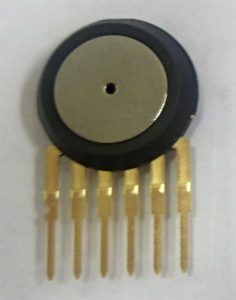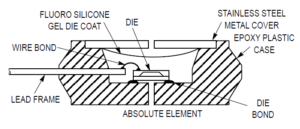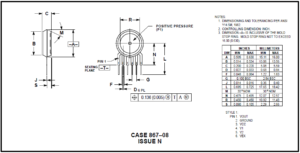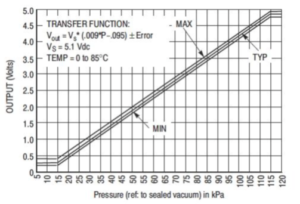
The pressure sensor used is the MPX4115A from Motorola. It uses a silicon piezoresistive sensor element. The figure to the right presents a cross-sectional view of the sensor.
If a material is called “piezoresistive”, it means that the resistance of the material will change when a mechanical stress is applied. In this case the piezoresistive material is silicon. The changes of resistance for silicon are far greater than for example steel, making this material very useful to use as a sensor element in a pressure sensor.
The figure to the right shows a more detailed look into the sensor. It shows the dimensions of the sensor and the layout of the connections. To relate t
he measured voltages to ambient pressure values, the transfer function of the sensor is needed. Such a function describes the mathematical relation between the voltage output of the sensor and the equivalent pressure. This function can be found in the datasheets of the sensor. The figure below to the left shows the output voltage versus the ambient air pressure for the sensor as we find it in the datasheet. The output voltage is:
Where P is the airpressure in kPa and is the supply voltage.



